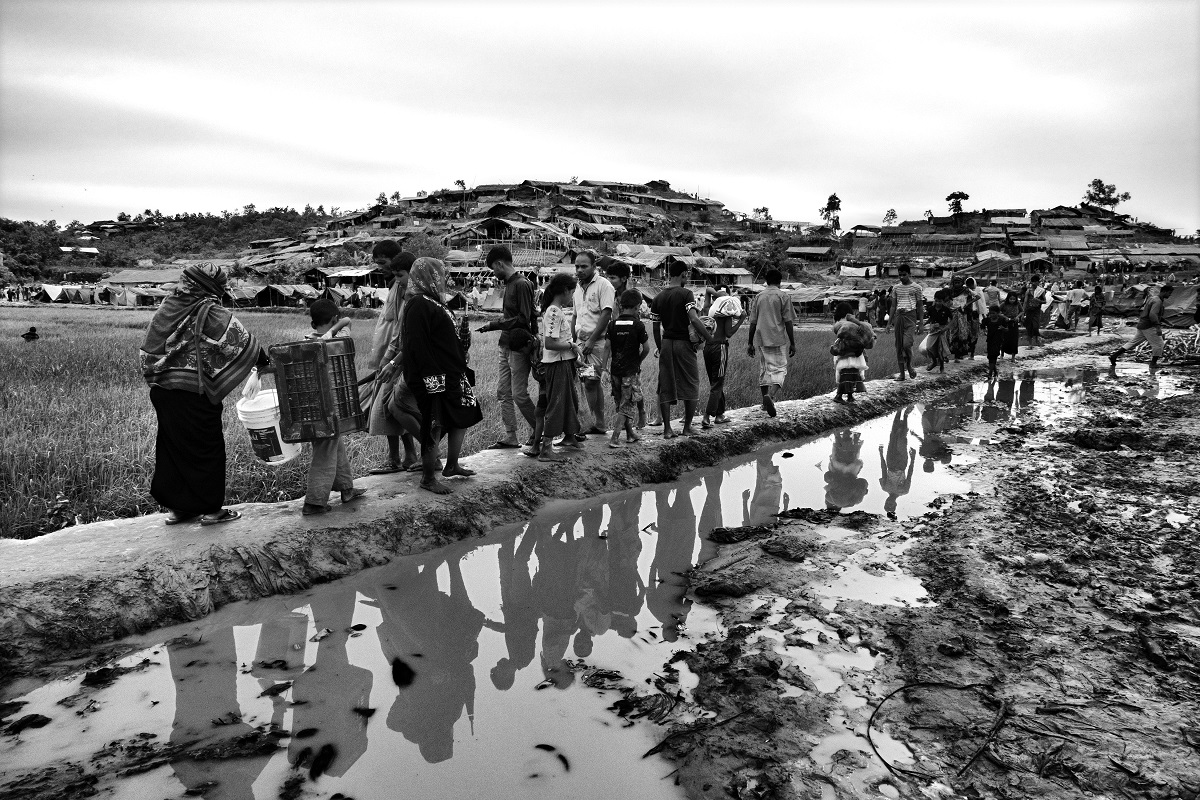November 20, 2017

The Simon-Skjodt Center for the Prevention of Genocide of the United States Holocaust Memorial Museum and Fortify Rights, a Bangkok-based human rights organization, released a report, They Tried to Kill Us All, documenting mounting evidence of genocide and other atrocity crimes being committed against Burma’s Muslim-minority Rohingya population. The report chronicles an array of tactics utilized by the military and government of Burma—as well as informal militias—against Rohingya civilians in the Rakhine State over the past year. These include such barbarous actions as murder, rape, sexaul violence, enforced diappearneces, and forced displacement. In harrowing terms, “N. Islam,” a survivor of the August 30 massacre at Min Gyi described the brutal mass killings and rapes being committed:
“After they first shot the men and boys, they selected some women from the group and put the women on the top of the hill. While the soldiers were killing and cutting the others, these women were then taken to the riverbank. Groups of around ten soldiers took about six women three times. They took them to the bushes of the bank. And then they came again and took six more. I couldn’t see what happened to them but the women never came back. I believe they were raped and killed.”
In addition to reaching the same conclusion as the United Nations and various other nongovernmental organizations that the Burmese government is carrying out a campaign of ethnic cleansing in northern Rakhine State, the report also finds strong evidence of crimes against humanity and raises grave and growing concerns of genocide.
The report release coincided with Secretary of State Rex Tillerson’s visit to Burma. During his brief time in the country, Tillerson met with Aung San Suu Kyi—the State Counselor and de facto leader of Burma—and Sr. Gen. Min Aung Hlaing, the country’s military commander, to discuss the Rohingya situation. Following these meetings Tillerson held a joint press conference with Suu Kyi in which he called for a credible and impartial investigation, and stressed the need for justice and accountability. Referencing the broader democratic transition in which this particular crisis emerged, the Secretary said, “The key test of any democracy is how it treats its most vulnerable and marginalized populations. It is the responsibility of a government and its security forces to protect and respect the human rights of all persons within its borders and to hold accountable those who fail to do so.”
The joint Museum/Fortify Rights report urges particular next steps in order to stem the violence, prevent future atrocities, and promote accountability. Some necessary steps include pressure from the international community on the Burmese government to dismantle state-led persecution of Rohingya, extend citizenship rights to Rohingya, and refer the situation to the International Criminal Court. It is imperative that both domestic and international actors take concrete steps to end these atrocities and promote justice and accountability for those commissioning these crimes.
View All Blog Posts